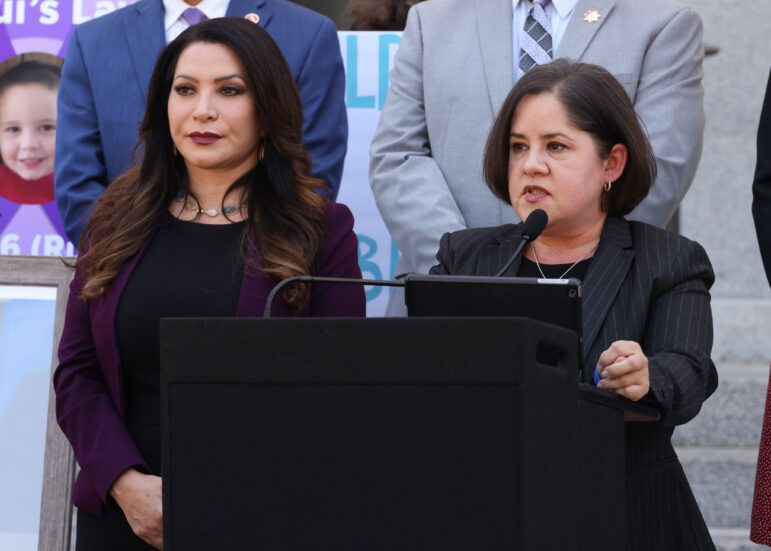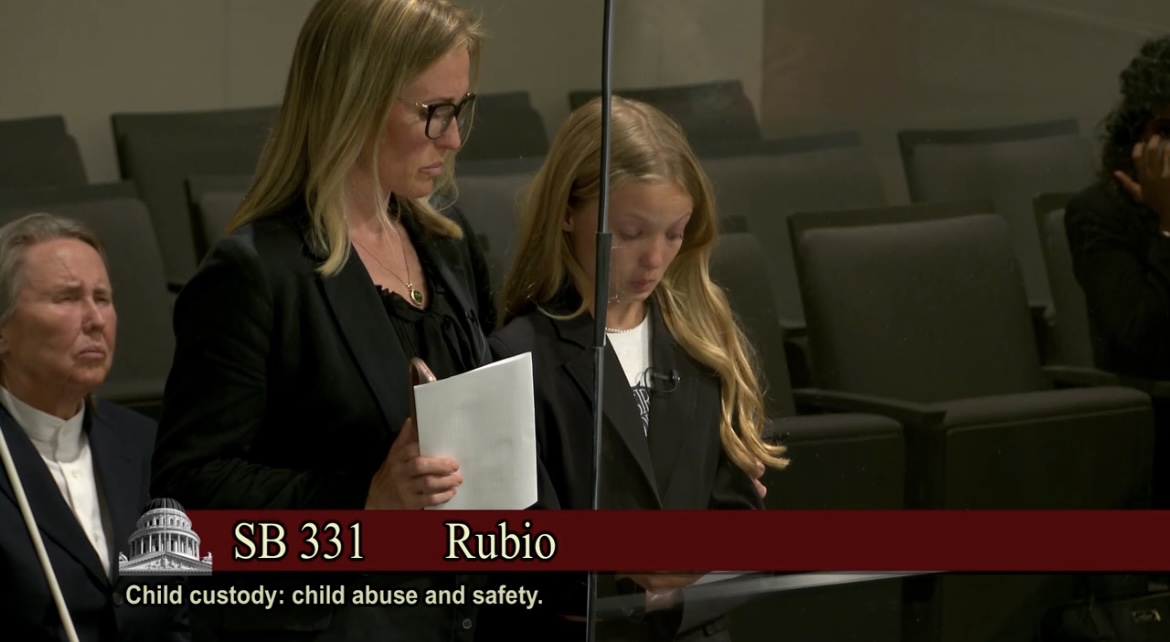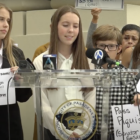California’s Senate Judiciary Committee Tuesday night unanimously endorsed a bill that would require what children’s advocates describe as crucial reforms to ensure children are safe amid contentious custody proceedings.
Introduced by state Sen. Susan Rubio, D-Baldwin Park, the bill — Piqui’s Law: Keeping Children Safe from Family Violence — “gives voice to the 920 children that are calling out to us from their graves,” the lawmaker said in introductory remarks before the committee. One way the state could do that, she said, would be to better train court staff and judges.
The bill is named after Piqui, a 5-year-old boy murdered by his father, who suffocated his son while he was sleeping in his car seat in 2017 during an unsupervised visit.
Piqui’s mother, Ana Estevez, gave tearful testimony, saying her son would not have died had the judge approved her request for sole custody and issued a restraining order against her abusive ex-husband.
Piqui’s Law would direct the Judicial Council of California — the policy-making body of the California courts responsible for ensuring the impartial administration of justice — to expand training for judges on domestic violence and child abuse as part of continuing education requirements.

Office of Sen. Susan Rubio
Ana Estevez speaks about her son Piqui, who was murdered by her ex-husband during an unsupervised visit. She stands with Sen. Susan Rubio, who introduced SB 331 to to ensure children are safe amid contentious custody proceedings.If approved by both houses of the Legislature and signed by the governor, Senate Bill 331 would establish judicial reporting requirements on these trainings and expert testimony in child custody proceedings.
“One thing is clear,” Rubio said. “We need to educate” the judiciary on domestic violence issues.
Another controversial provision in the bill would prohibit courts from ordering family reunification therapy for children of estranged parents. Judges sometimes forcibly send children to camps that often last no more than four days and cost $25,000 to $40,000, to persuade them to bond with the parent they say abused them. Frequently, the children are taken to other states, where they are prevented from having contact with the other parent. Afterward, court ordered separation could last for months or years.
Through tears, with her mother, Jill Montes, by her side, 10-year-old Zoe Winenger testified at the April 25 committee hearing that she was traumatized at a reunification camp. On her way home after the hearing, she told her mother that testifying was the best thing she had done in her life, according to Rubio’s office.
Some at the hearing defended reunification therapy. One father said that without the judge in his case ordering it, he would not have gotten custody of his daughter. “Reunification therapy does in fact work,” he said.
In a press release after the hearing, Rubio said: “Protecting our children should always be a priority, but the legal system failed Piqui and so many other children. SB 331 will begin a systematic change in family court to prevent another family from suffering such pain.”
This is the second time the senator has introduced such a bill. Last year, pushback from the Judicial Council, which objected to the provision that mandated additional training for family court judges, forced Rubio to withdraw her bill. SB 331 is an amended version of that bill.
Several states are considering similar bills to comply with a provision in the federal Violence Against Women Reauthorization Act of 2022. The act promises states up to $25 million in grants if their reforms comply with national requirements.










